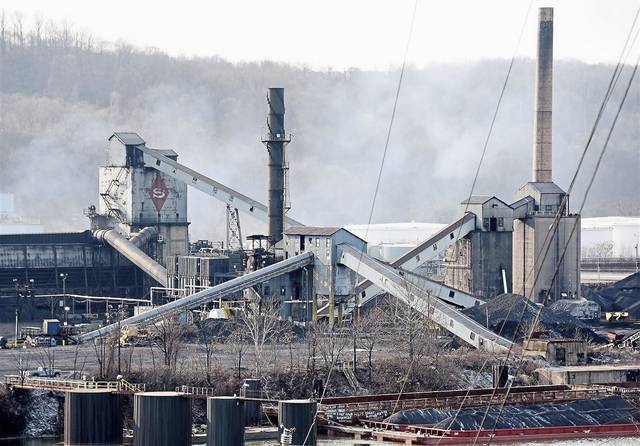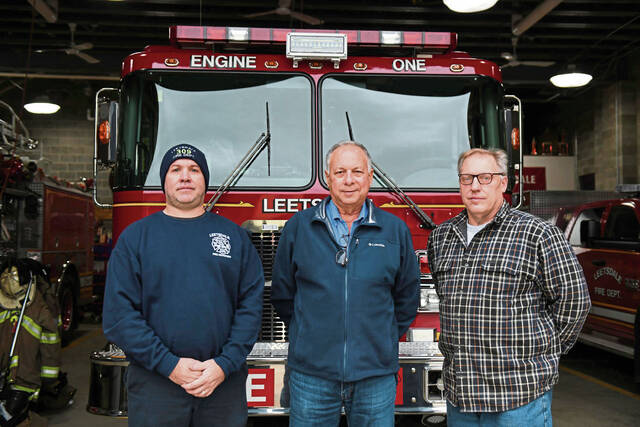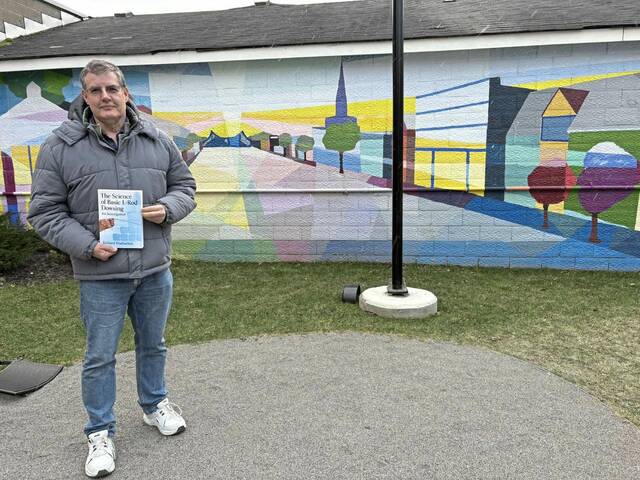Plans for the 50-acre former Shenango Coke Works site on Neville Island remain unclear — but property owner DTE Energy hopes to ink a deal with one or more developers by the end of this year, community organizers told residents at a public meeting Wednesday night.
No potential tenants or specific uses have been identified for the industrial space, left undeveloped since the Shenango plant shut down four years ago.
But a coalition of public officials, foundations and residents decided to get a head start on sharing their top priorities and concerns with DTE Energy — and whomever the Detroit-headquartered company is courting as possible buyers.
On Wednesday, several dozen people — including local and state public officials, activists and residents of several municipalities — gathered at the Robert Morris University Island Sports Center in Neville for the unveiling of a new report detailing local asks and guidelines for repurposing the site.
The report marks the culmination of a year of work by the Shenango Reimagined Advisory Council, which aims to make sure residents and local municipal officials have a say in what happens to the brownfield.
“We have a plan, and we report to the communities, we are the community and we want to make sure that we have a safe place to be for the environment, for the air, for the water,” said Thaddeus Popovich, co-founder of Allegheny Clean Air Now and a speaker at the meeting. “And we believe that a Fortune 500 company will listen to us.”
Preferably, the property will be owned by one or more developers who commit to cleaning up the area and, hopefully, improving it by providing additional public amenities and upgrades, such as riverfront trails, bike paths and attractive landscaping or park space, according to the council and residents at the meeting.
They definitely don’t want another coke plant, or anything that produces similar levels of pollution and health risks.
Reuses identified as posing less environmental harm included the likes of a commercial bakery, robotics manufacturer, pharmacy packaging plant, medical marijuana grower or a site for self-driving cars.
The space cannot be used for residential or commercial purposes.
DTE Energy has indicated interest in underground pipelines at the site.
The report proposes the possibility of selling the property in pieces by dividing 300,000 square feet of space across three parcels — two of which would have both river and rail access, interspersed with green landscaping and roads that don’t block off residents who live nearby.
Officials say the redevelopment has the potential to economically and environmentally impact more than 18,000 residents in Neville Township, Avalon, Ben Avon, Bellevue and Emsworth, and up to 70,000 residents within a three-mile radius.
The council, convened by the Chicago-based nonprofit Delta Institute and funded by The Heinz Endowments, has met more than 10 times in the past year to discuss regional conditions and create a set of guiding principles for the site’s future, based issues such as on job creation, public benefits and environmental impacts.
It includes representatives from Allegheny County, Bellevue, Ben Avon, Emsworth, Allegheny County Clean Air Now, Breathe Project, Allegheny Land Trust and Neville Township.
Ben Avon Councilwoman Kara Roggenkamp stood up at the meeting to say that personally as well as on behalf of fellow residents, the council’s guiding principles “well represent what we would like to see for Shenango.”
“What we’re looking for, ultimately, is a use that’s compatible with our neighborhoods and our surroundings, which are a valley that’s subject to inversions which trap pollution near our homes,” Roggenkamp said. “So I would like to see any kind of development on that site that preserves our clean air because, boy, has their been a difference since the coke plant closed.”
For years, community members protested the coke plant’s negative impact on respiratory health. The Allegheny County Health Department found that emergency room visits for asthma and chronic obstructive pulmonary disease in the region dropped 38% in the year following the plant’s closure.
Officials imploded its smokestacks in mid-2018.
The council’s principles include maximizing tax revenue while limiting environmental externalities like air pollution.
Among them: No hydraulic fracturing, or fracking, or most related petrochemical activities.
They state the site should not contain any activities that require an Environmental Protection Agency (EPA) Clean Air Act Title V permit — the island already has four such facilities.
They call for good jobs, local road access and sustainable building design, such as making use of solar panels on rooftops and green-friendly stormwater designs.
The nonprofit Delta Institute, which specializes in brownfield redevelopment, received grants from The Heinz Endowments, Just Transition Fund and Community Foundation for the Alleghenies to convene the regional council.
Newmark Knight Frank, a national real estate advisory firm, produced a market research study that evaluated market supply and demand in the area. Local firms DJS Ventures and Environmental Planning and Design provided environmental consulting for the revisioning project.
The council plans to incorporate community feedback and submit the report formally to DTE Energy on Feb. 28.








